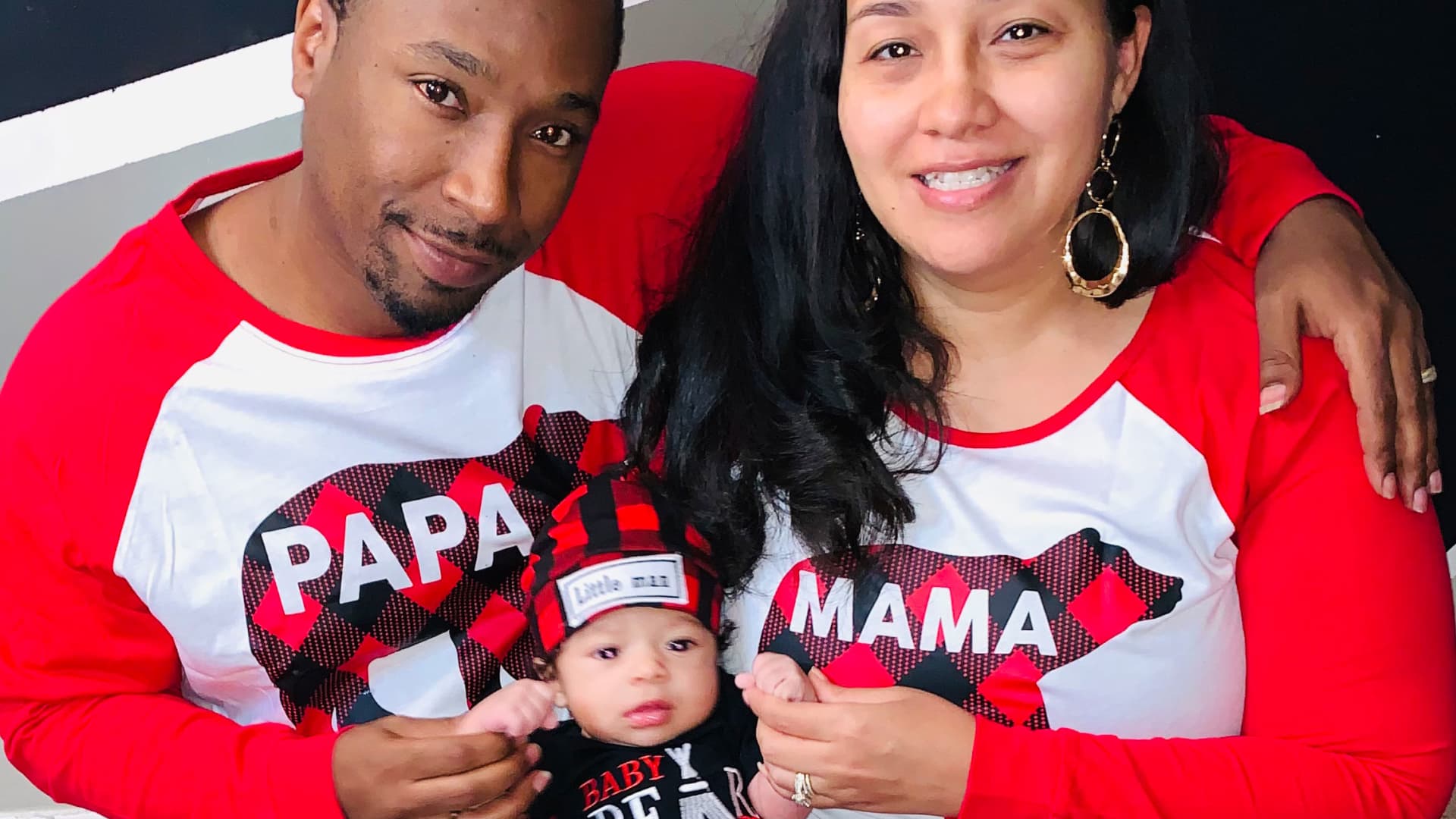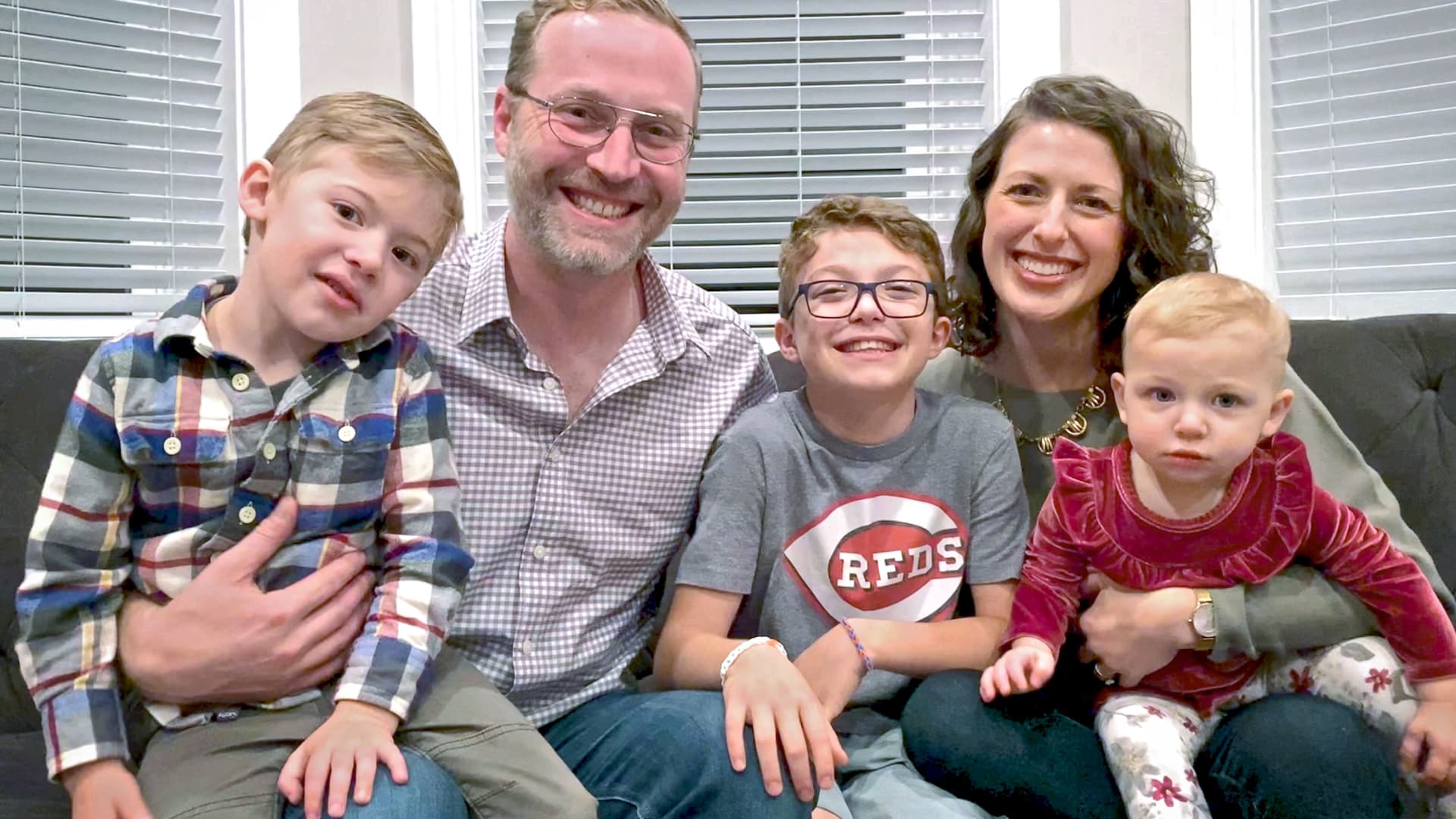
Navigating the terrain of a blended family's financial life is tricky enough in normal times. Add a pandemic into the mix, and things can get downright exhausting.
"Stressful financial situations bring to the surface underlying family dynamics," said marriage and family therapist Ron Deal, co-author of "The Smart Stepfamily Guide to Financial Planning."
"That is true for all relationships," he said. "In blended families, there can be an added element of insecurity within the family."
For Lisa Lickers, 35, those challenges came with an additional one: She was pregnant when the crisis hit. She gave birth to a boy in September.
More from Invest in You:
Expecting a baby? Make these financial moves now
How to navigate uncomfortable money matters with your family
Pandemic is worse than 2008 crisis for a majority of Americans, study says
Lickers and her husband, Keyontay Ricks, already had five children between them, all ages 16 to 20. Her 17-year-old daughter was living with them in their two-bedroom rented townhouse in Houston. Her 20-year-old college-aged daughter came home in March.
"We had to make a lot of decisions that affected our family because of the pandemic," she said.
Money Report
Lickers wanted to shield herself and her baby from the virus, so she didn't want her daughters to go to work. However, since they wanted to make money, the family decided that her 17-year-old high-school senior could move into an apartment with her older sister nearby. The girls attend school virtually, work and pay the rent, while Lickers provides financial assistance as needed.
Fortunately, Lickers feels financially secure and has emergency savings.

"The best thing for us is that we had prior preparations in place," she said.
However, she and her husband had to postpone their dream of owning their own home. Ideally, she wants a place big enough to house the entire family. With the housing market "crazy," she didn't want the additional stress during her pregnancy.
While there may be no control over certain situations during the pandemic, families can employ strategies to help navigate their new normal.
Communication is key
Given the dynamics within a blended family, it's important to talk about your finances and how you are going to manage your money together, Deal said.
Each biological family has years of history on how they handle their finances, and they may be quite different from one another.
Your co-parents are also an important part of that conversation.
"What we are going for here is trying to is a level of cooperation of managing children and household expenses and trying to be diplomatic and respectful of the other home's circumstances," Deal said.

Certified financial planner Holly Mazzocca, a wealth advisor at Cincinnati-based Bartlett Wealth Management, knows first-hand the balancing act that takes place in blended families. She has a 10-year-old stepson and two biological children with her husband, Louis. Her husband's ex also has two children with her new husband, bringing their blended family total to five children.
Mazzocca, 34, believes keeping the lines of communication open between families will help each understand what the other is going through.
"One family is probably going to be impacted by the pandemic differently than the other family," she said.
"That can create stress if they don't feel that each family is contributing to the same level."
Watch your expenses
Assess your financial situation and see where you can cut expenses. If you can, take some of that extra money and put it into an emergency savings account.
One place to look is at what you're spending on your children. In blended families, it's easy for parents to overspend, Mazzocca said. Instead of buying doubles of certain items, like shoes or sports equipment, for each home, have the kids bring them back and forth.
Also, pay careful attention to the other family's circumstances. If they are going through a tricky time, see if there is something your family can pick up, she suggests.
If you owe child support and can't pay it due to a job loss, unemployment doesn't get you off the hook until you go to the court and get a modification order, Deal said. That means you may wind up paying interest on those missed payments.
"If you find yourself in that situation, you have to communicate clearly about your situation to the other household while you're trying to do what you can to come up with the money," he said. "Pay something rather than nothing."
Stay unified
If an adult child or a parent moves into your home, it's important to have "define your relationship" conversations and figure out how everyone will live together, Deal said. Have many of them over the course of time, and be patient, he added.
For instance, with your grown children, the relationship will be different than when they were young, when you dictated their behavior.
No matter what the situation, it is important that the couple sticks together, Deal said.
"It is very easy for the couple to end up in separateness when these circumstances arrive, so you have to work hard to protect your marriage and find unity," he said.
SIGN UP: Money 101 is an 8-week learning course to financial freedom, delivered weekly to your inbox.
CHECK OUT: I have 9 side hustles and bring in up to $4,000 each month: Here's my best advice via Grow with Acorns+CNBC.
Disclosure: NBCUniversal and Comcast Ventures are investors in Acorns.






